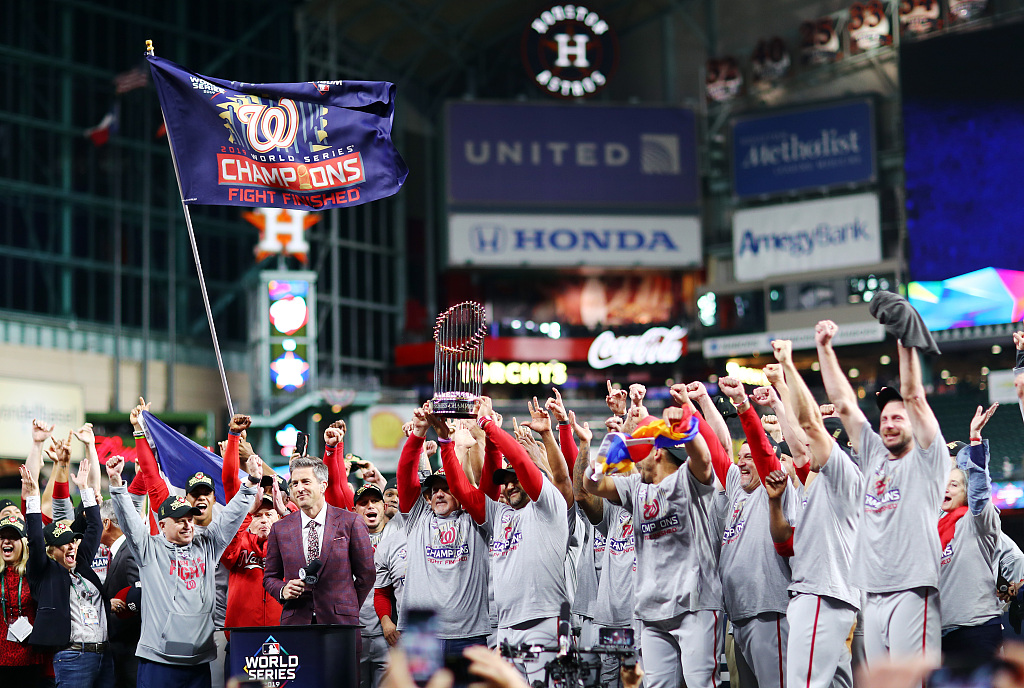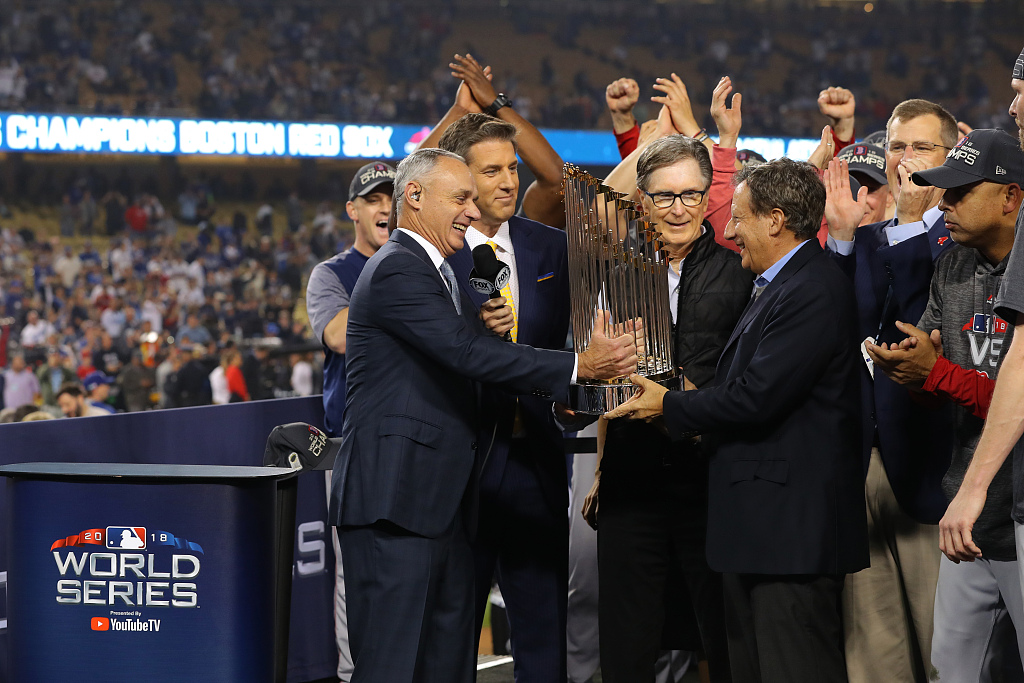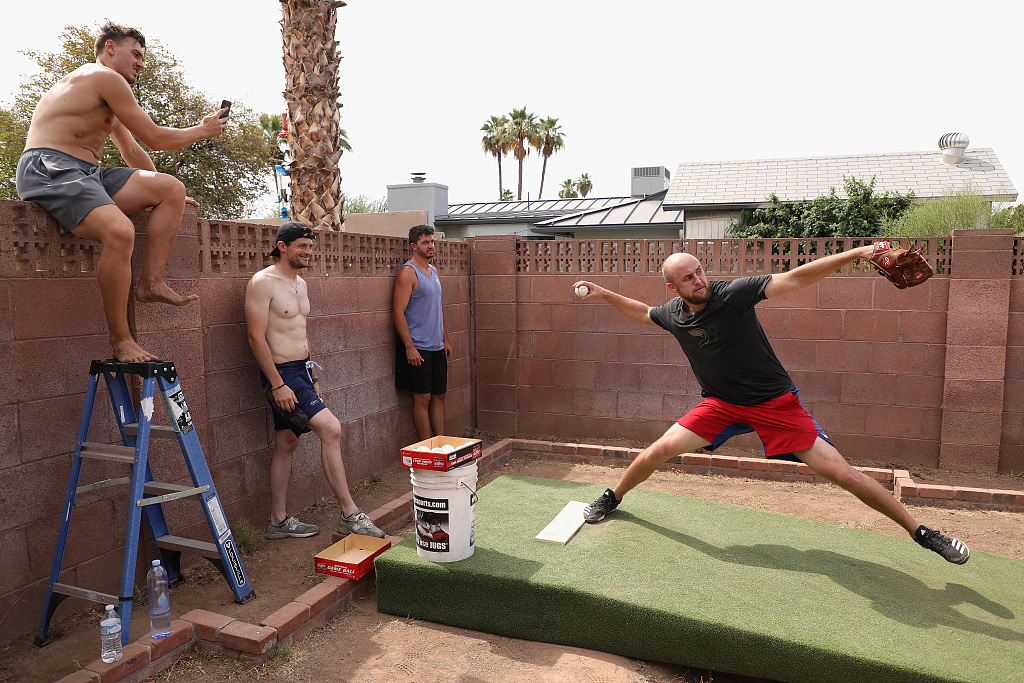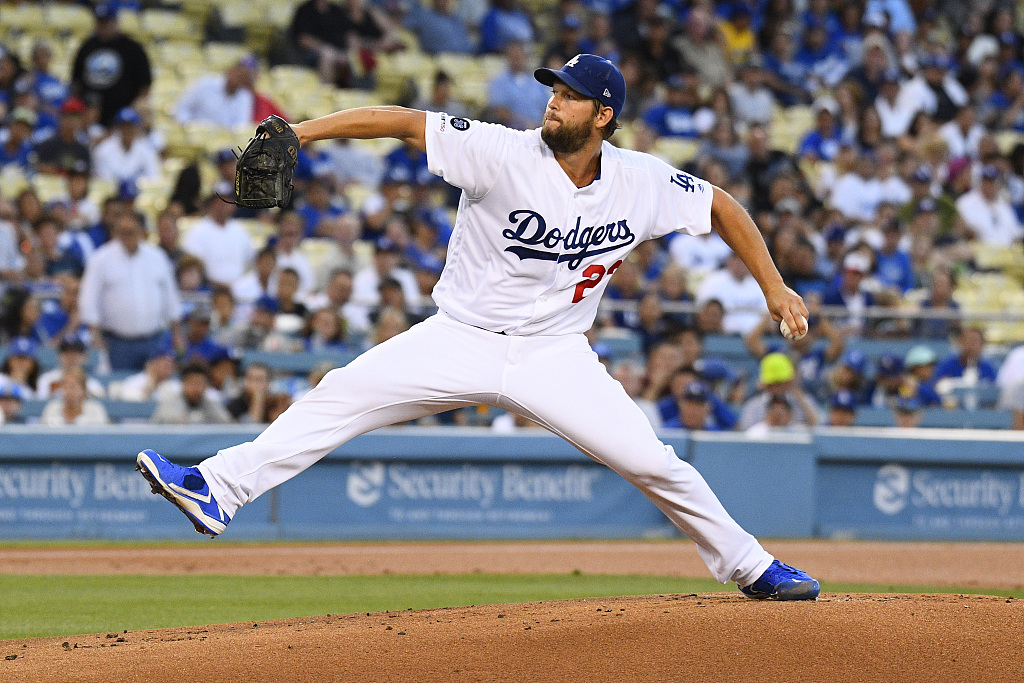
Washington Nationals hoist the trophy after defeating the Houston Astros 6-2 in Game Seven to win the World Series in Houston, U.S., October 30, 2019. /VCG
Washington Nationals hoist the trophy after defeating the Houston Astros 6-2 in Game Seven to win the World Series in Houston, U.S., October 30, 2019. /VCG
Major League Baseball (MLB) issued a 60-game schedule on June 23 that will start its 2020 season one month later in empty ballparks as the sport tries to push ahead amid the COVID-19 pandemic following months of acrimony.
A dramatically altered season with games full of new rules was the final result of failed financial negotiations. But for fans eager to see any baseball this year at least now they can look forward to opening day on July 23 or 24.
The announcement by MLB came while more players continue to test positive for the COVID-19, at least seven on the Philadelphia Phillies alone. And a stark realization remained, that if health situations deteriorate, all games could still be wiped out.

MLB commissioner Rob Manfred (L) presents the World Series trophy to Red Sox owners after the Red Sox win the World Series at Dodger Stadium in Los Angeles, U.S., October 28, 2018. /VCG
MLB commissioner Rob Manfred (L) presents the World Series trophy to Red Sox owners after the Red Sox win the World Series at Dodger Stadium in Los Angeles, U.S., October 28, 2018. /VCG
One day after the players' association rejected an economic agreement and left open the possibility of a grievance seeking hundreds of millions of dollars in damages, the bickering sides agreed on an operation manual. Baseball commissioner Rob Manfred then unilaterally imposed the schedule, his right under a March agreement with the union.
In a twist, the sides expanded the designated hitter to games between National League teams for the first time and instituted the radical innovation of starting extra innings with a runner on second base.
Playoff teams remain at 10 for now – there is still talk of a possible expansion. The rejected deal had called for 16 teams.
Players will start reporting for the resumption of training on July 1. It remains to be seen which players will report back to work – high-risk individuals are allowed to opt out and still receive salary and service time, but others who sit out get neither money nor the service credit needed for eligibility for free agency and salary arbitration.

MLB pitcher Joe Kuzia (R) with the Texas Rangers throws a pitch from a makeshift mound in front of his friends amid the COVID-19 pandemic in Scottsdale, U.S., June 5, 2020. /VCG
MLB pitcher Joe Kuzia (R) with the Texas Rangers throws a pitch from a makeshift mound in front of his friends amid the COVID-19 pandemic in Scottsdale, U.S., June 5, 2020. /VCG
Each team will play 10 games against each of its four division rivals and 20 total games against the five clubs in the corresponding regional division in the other league.
This will be MLB's shortest season since 1878, a schedule of such brevity that some fans may question the legitimacy of stats and records.
Rather than play 162 games over 186 days, the season will be 60 games over 66 or 67 days, depending on whether there is a nationally televised Thursday night opener. It is scheduled to end September 27, which leaves little margin to make up September rainouts. MLB insisted it needed to complete the World Series in October, avoiding any second wave of the COVID-19.

Los Angeles Dodgers pitcher Clayton Kershaw throws a pitch during the MLB game between the Toronto Blue Jays and the Los Angeles Dodgers in Los Angeles, U.S., August 20, 2019. /VCG
Los Angeles Dodgers pitcher Clayton Kershaw throws a pitch during the MLB game between the Toronto Blue Jays and the Los Angeles Dodgers in Los Angeles, U.S., August 20, 2019. /VCG
Players are being given staggered reporting times over several days for intake screening. The time will be used for coronavirus testing ahead of the resumption of workouts, which were stopped March 12 due to the pandemic.
"There's a lot more pressure because in a 60-game schedule, I think that you have 25 percent more teams that can compete, that had no idea they were going to compete for 162 games," said Hall of Fame pitcher John Smoltz, now a broadcaster.
Source(s): AP